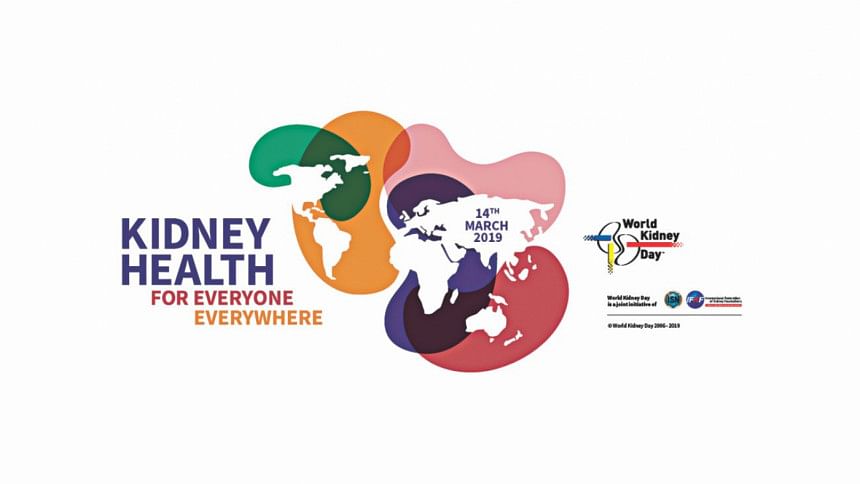Dietary dos and don'ts for kidney patients

14 March is observed as World Kidney Day all over the globe. Around 850 million people worldwide are now estimated to have kidney diseases brought on by various causes. Chronic Kidney Disease (CKD) causes at least 2.4 million deaths per year, and is now the sixth fastest growing cause of death. Hence, our 2019 theme is "Kidney Health for Everyone Everywhere," aiming to highlight the growing burden of kidney disease and kidney health disparity and inequity worldwide.
With World Kidney Day (WKD) just around the corner, lets discuss the dos and don'ts of food for kidney patients. Dietary treatment can sometimes be extremely complicated in coexisting diseases like diabetes, and may change over time, depending on the functional status of the kidney. However, a proper diet plan, recommended by a dietician or kidney specialist, can help the patient manage the condition better and lead a better life.
Diet for kidney/renal disease is intended to reduce the amount of excretory workload by the kidneys, and help them maintain fluid, acid-base, and electrolyte balance. It is essential that these patients receive sufficient calorie unless they are overweight. Energy requirements should be fulfilled by carbohydrate and fat. The fats should be unsaturated (good fat) to prevent hyperlipidemia (high level of lipid/fat). Most frequently, protein is restricted as the protein increases the amount of nitrogen waste, which the kidney must handle.
Restriction of sodium or salt intake is ordered if there is edema (swelling in the leg) and hypertension (high blood pressure). Food like potato, tomato, dates, mango, beet, carrot, spinach, pumpkin, citrus fruits, banana and dry fruits contain potassium, and hence, these may be restricted to some patients because there is high level of potassium in end stage renal disease (ESRD).
Excess potassium can cause cardiac arrest. One precaution here is — patients with ESRD should not use salt substitute to avoid sodium because the sodium in these products are replaced with potassium.
High phosphorus found in protein rich food such as dairy products, meat, legumes, nut and seeds as well as whole grain, is another mineral which needs to be limited.
Patients with kidney disease often have an increased need for calcium, vitamins B, C and D, and supplements are often given. Iron is commonly prescribed because anemia frequently develops in patients with kidney disease.
Fluid intake is regulated after monitoring the fluid status by regularly checking weight and comparing it to the weight immediately following a dialysis session.
Diet during dialysis: Dialysis patients may need additional protein, but the amount must be carefully controlled to prevent the accumulation of protein waste between treatments. Potassium is usually restricted for dialysis patients. A typical renal diet could be written as "80-3-3" which means 80gm protein, 3gm sodium and 3gm potassium a day. Usually, a diet contains 3 gm of sodium, which is the equivalent of a no added salt diet. Sodium and salt requirement could increase with perspiration, vomiting, fever and diarrhoea.
Photo: Collected

 For all latest news, follow The Daily Star's Google News channel.
For all latest news, follow The Daily Star's Google News channel. 






Comments